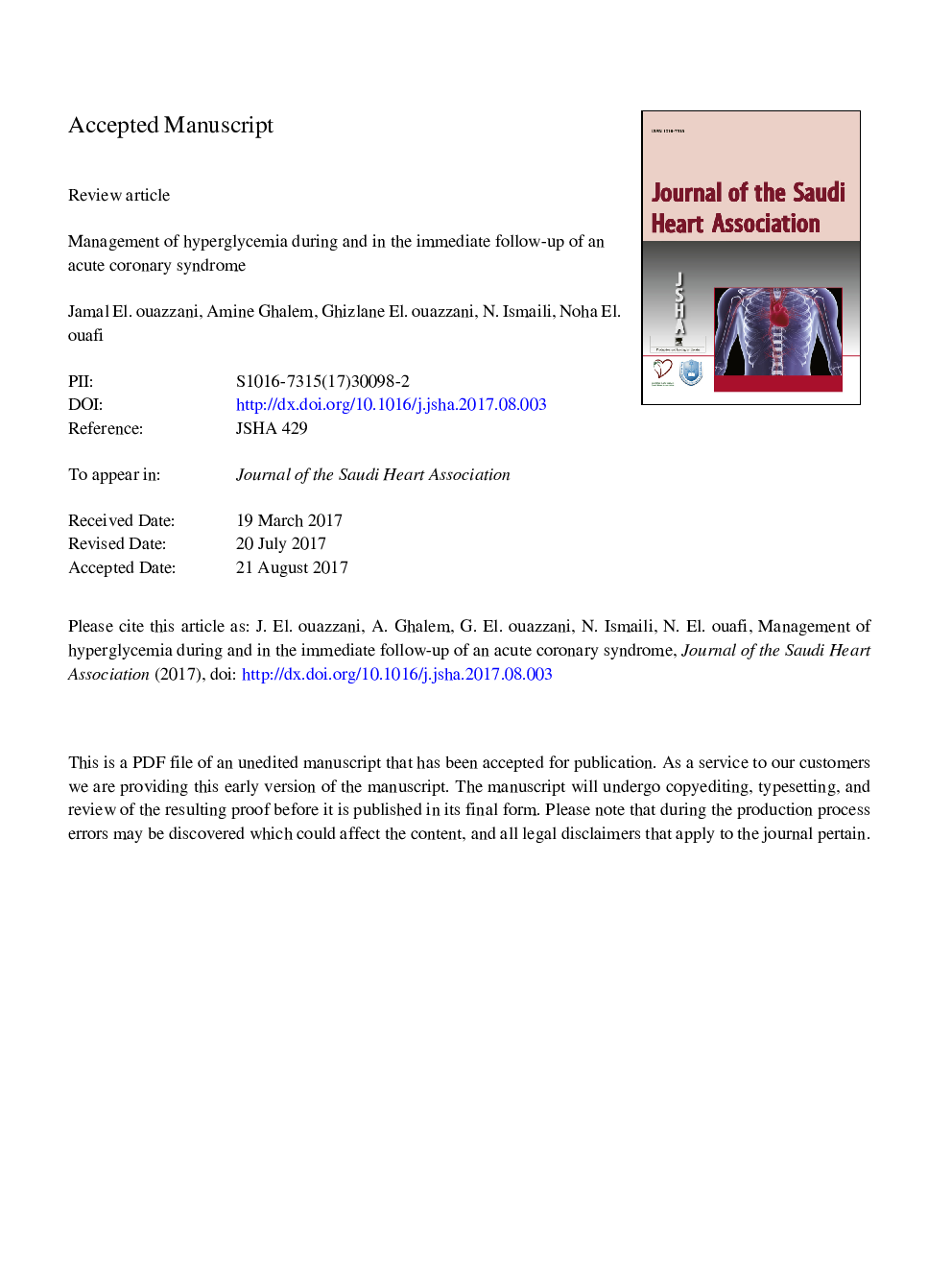| کد مقاله | کد نشریه | سال انتشار | مقاله انگلیسی | نسخه تمام متن |
|---|---|---|---|---|
| 8669784 | 1578501 | 2018 | 23 صفحه PDF | دانلود رایگان |
عنوان انگلیسی مقاله ISI
Management of hyperglycemia during and in the immediate follow-up of acute coronary syndrome
ترجمه فارسی عنوان
مدیریت هیپرگلیسمی در طی و در پیگیری فوری سندرم حاد کرونری
دانلود مقاله + سفارش ترجمه
دانلود مقاله ISI انگلیسی
رایگان برای ایرانیان
کلمات کلیدی
دیابت، هیپرگلیسمی، سندرم حاد کرونری، داروهای ضد بارداری خوراکی درمان انسولین داخل وریدی،
موضوعات مرتبط
علوم پزشکی و سلامت
پزشکی و دندانپزشکی
کاردیولوژی و پزشکی قلب و عروق
چکیده انگلیسی
Diabetes is a serious, frequent, and insidious morbidity and mortality risk factor in patients with coronary artery disease. It has been shown that carbohydrate metabolism disorders are common in acute coronary syndromes (ACSs): 30-40% of patients have diabetes, 25-36% have an intolerance to carbohydrates, and only 30-40% have a normal carbohydrate profile. Hyperglycemia occurring either in diabetic or nondiabetic patients is strongly associated with a poor prognosis. It increases the extent of myocardial necrosis, and the risk of recurrence acute coronary syndrome and hemodynamic complications, particularly heart failure and cardiogenic shock, reflecting the importance of optimal management of glucose metabolism abnormalities. The objective of this article is to suggest a screening and management guide for carbohydrate metabolism disorders during and in the immediate follow-up of ACS in diabetic and nondiabetic patients. Screening must be systematic in any patient admitted for ACS, and based on hemoglobin A1c and oral glucose tolerance testing. Treatment of hyperglycemia in the cardiology intensive care unit is recommended in any patient admitted with hyperglycemia >1.80Â g/L or postfeeding blood glucose level >1.40Â g/L, and should be based on intravenous insulin with concomitant infusion of glucose solution under strict monitoring. Once the patient is no longer in intensive care, intravenous insulin therapy is no longer recommended, and the passage to a fixed insulin therapy regimen or to oral antidiabetics should be considered in consultation with diabetologists. During the rehabilitation phase, good glycemic control improves both prognosis and survival.
ناشر
Database: Elsevier - ScienceDirect (ساینس دایرکت)
Journal: Journal of the Saudi Heart Association - Volume 30, Issue 2, April 2018, Pages 113-121
Journal: Journal of the Saudi Heart Association - Volume 30, Issue 2, April 2018, Pages 113-121
نویسندگان
Jamal El Ouazzani, Amine Ghalem, Ghizlane El Ouazzani, Nabila Ismaili, Noha El Ouafi,
